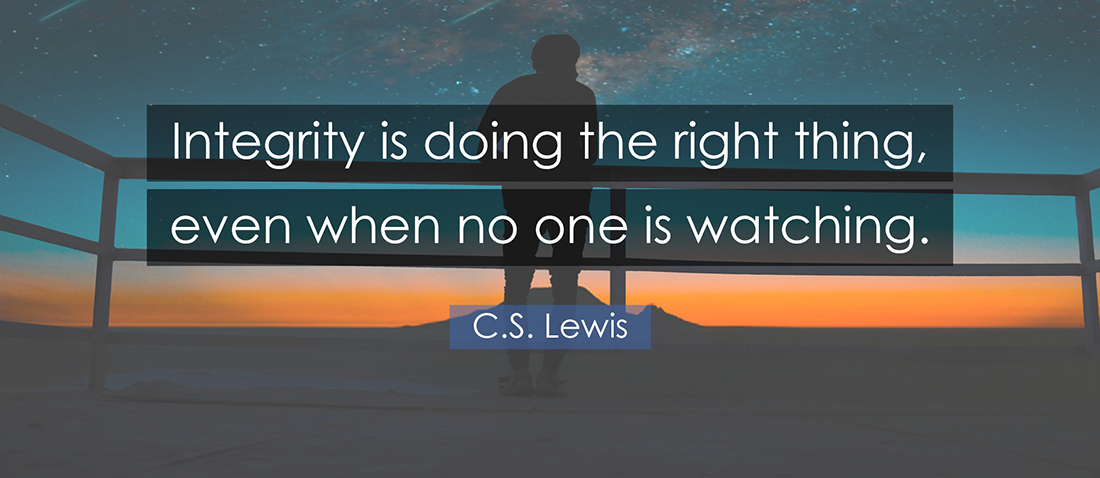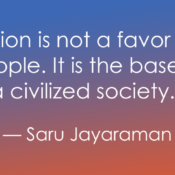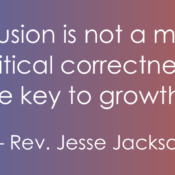
Trust Is Not Optional: The Ethical Responsibility of Interpreting Agencies
Behind every request for a sign language interpreter is a simple truth: communication is deeply personal, representing the moment someone entrusts their voice to another. For individuals, one bad interpreter can ruin an experience - turning what could have been a positive experience into feelings of exclusion and exhaustion.
Qualified sign language interpreters don’t simply translate words. They carry nuance, intent, and meaning into spaces where understanding cannot be compromised; often in contexts that are deeply personal or high-stakes scenarios. Meanwhile, interpreting agencies’ bear significant responsibilities in ensuring qualified interpreters are secured and assigned. Ultimately, failing to uphold rigorous ethical and professional standards can cause real harm.
Which brings me to my point - qualified interpreters work for ethical agencies. But let’s dig into this further: beyond skill, what constitutes one being truly qualified? And who is ultimately responsible for ensuring qualified interpreters are assigned to interpreting assignments?
The Power of Trust
Interpreting agencies hold a unique position. For many Deaf, DeafBlind, and hard of hearing individuals, the agency acts as the gatekeeper to the professionals who will serve as a cultural mediator and liaison to communication access with hearing individuals who do not sign. When an agency sends an interpreter, the assumption is that the interpreter has the requisite knowledge and skills, but also is trustworthy, ethical, and culturally competent.
Unfortunately, when agencies cut corners, skip proper vetting, or prioritize filling a slot over ensuring qualifications, they put the very community they are supposed to serve at risk. The risk is not just about whether the interpretation will be accurate. It’s about whether the interpreter is someone who can be entrusted with access to personal, professional, and sometimes very confidential information.
Personally, I’ve always believed that trust is earned. Once broken, it’s difficult to repair.
Over the years, I’ve worked with countless interpreters and agencies, most of whom are dedicated, ethical professionals who care deeply about the role they play. But every now and then, something happens that stops me in my tracks - a moment that makes me question how much we can truly rely on the systems in place to protect the Deaf community. It’s in those moments I’ve realized that the integrity of our interpreting services is only as strong as the standards our community sets and enforces.
The Cost of Cutting Corners
When agencies fail to uphold these standards, the harm ripples out. From firsthand experience, I can tell you that a poorly vetted interpreter can:
- Provide inaccurate interpretation, leading to misunderstandings in healthcare, legal, or workplace settings.
- Breach confidentiality, violating the trust and privacy of the Deaf person and potentially expose organizations to legal liability.
- Create unsafe situations if they have a history of harmful or predatory behavior.
The Deaf community is already burdened by systemic barriers that contribute to the Deaf, DeafBlind and Hard of Hearing tax, also referred to as #TheDDBHHTax. We shouldn't have to risk being harmed by the very people who ar esupposed to bridge the communication gap, whether through incompetence or unethical behavior.
Vetting Is Not a Luxury — It’s a Moral Obligation
To avoid undue harm and risk for our community, we must raise the bar and advocate for ethical, qualified interpreters.
This means encouraging agencies to vet their providers - which goes far beyond checking if they have certification. It requires:
- Background Checks: Comprehensive screenings for criminal history, with clear policies on what offenses disqualify an interpreter from working in certain settings.
- Verification of Qualifications: Confirming certifications, education, and continuing professional development.
- Reference Checks: Continuously monitoring experiences with past clients to assess reliability, professionalism, and ethics.
- Cultural Competence Assessment: Ensuring the interpreter understands and respects Deaf culture and professionalism, not just the mechanics of interpreting.
These requirements are not “nice to have” - they are essential and ethical obligations for interpretation agencies. Skipping due diligence is not just negligence, it’s a disservice to the very customers and consumers an agency is supposed to serve.
The Role of Integrity in Agency Practices
The interpreting profession is grounded in ethical codes that emphasize accuracy, impartiality, and confidentiality. But agencies themselves must also operate with integrity. That means:
- Transparency: Clearly communicating their vetting processes and standards to clients and Deaf community members.
- Accountability: Taking swift action if an interpreter violates ethical or professional standards.
- Commitment to Excellence: Prioritizing quality of service over filling as many appointments as possible.
Integrity is not a marketing buzzword. It’s the critical foundation of a service that directly impacts people’s lives.
Raising the Bar: Interpreting for Deaf Professionals
At 2axend, we combine passion with purpose and are laser-focused on the Deaf and hard of hearing user experience.
Interpreters influence every interaction - whether for a Deaf customer, employee, student, or patient. That’s why this ethical conversation is central to 2axend’s mission and to next month’s Interpreting for Deaf Professionals Summit on September 19-21.
This summit will focus on raising standards for interpreting in professional and corporate environments - and the underlying message is the same throughout all our interpreter-related summits: interpreting standards matter.
For Deaf professionals, the quality and ethics of interpreting can make or break a career opportunity, a client relationship, or ability to lead. We’ll be exploring what it takes for interpreters and the agencies that hire them, to serve not just as language facilitators, but as trusted partners in professional success.
By bringing Deaf professionals, interpreters, and organizational leaders together, we aim to create a shared understanding of what ethical excellence looks like and why it must be the baseline, not the exception.
If you haven't registered, rates increase on Monday, September 1st. Register at www.2axend.com/IDPSummit/Register.
A Call to the Deaf Community and Our Partners
The Deaf community collectively has the right to demand more from the agencies we rely on. We must inquire about their vetting process, ask how they handle ethical breaches, and let them know that they must ensure interpreters are qualified, ethical and trustworthy. If an agency cannot answer these questions, consider whether they deserve your trust and your business.
For our partners in healthcare, education, legal, and corporate sectors: do not assume the agency you work with holds itself to these standards. Vet your interpreting partners as thoroughly as you would vet anyone who has direct, unsupervised access to your organization and the people you serve.
The bottom line: Interpreting is not just a service, but an act of trust. Agencies that fail to recognize and honor this risk doing real harm. As a community, and as professionals who work alongside interpreters, we have the right to demand accountability. The safety, dignity, and access of the Deaf community depends on it.




